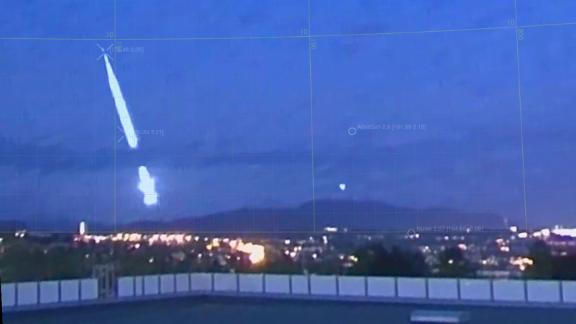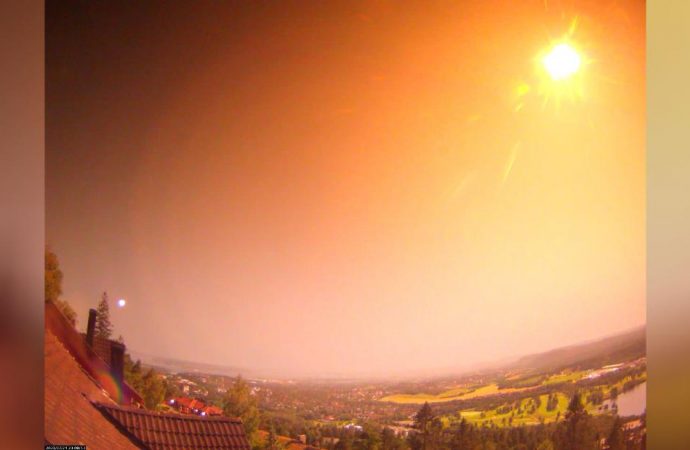An “unusually large” meteor illuminated the night sky over southern Scandinavia early Sunday morning before at least some of it came rumbling down near Oslo, the capital of Norway.
Source: CNN
The meteor “lit up the sky for a brief time as if broad daylight,” just after 1 a.m., Steinar Midtskogen, a spokesperson for the Norwegian Meteor Network, told CNN.
“A minute later or more a loud rumbling sound could be heard over a large area, perhaps up to 100 km (about 62 miles) away from where the meteor was seen straight overhead,” Midtskogen said in an email.
Some people close to the meteor’s path reported feeling a shock wave, Midtskogen said.
“Doors and hatches were blown open and there were gusts of wind. No damage has been reported, though,” Midtskogen said.

Courtesy Norwegian Meteor NetworkThe meteor probably fell about 15 miles outside Oslo, experts said.
Meteors over Norway are not uncommon, and the network has a number of cameras continuously monitoring the sky, according to Midtskogen.
A preliminary analysis of videos from the cameras shows that the meteor fell in Lier, about 15 miles west of Oslo, he said.
The Norwegian Seismic Array (NORSAR) confirmed the area and “recorded the airblast hitting the ground as a seismic event,” according to Midtskogen.
Now the search is on for meteorites – parts of the meteor – on the ground.
“We do not yet know for sure the size of meteor. It could be a rock weighing a few hundred kilograms, but we only expect a small part of this body to have reached the ground,” Midtskogen said.
“Our preliminary analysis suggests that it entered Earth’s atmosphere at a speed of about 15 km/s (9.3 miles per second) and it fragmented in a series of bright flashes between 35 and 25 km (22 and 15.5 miles) above ground,” he wrote.
The analysis also suggest that the meteor was not typical in that “its orbit seems to have been confined to the innermost part of the solar system,” and not originating in the asteroid belt between Mars and Jupiter, he said.
“This would make a recovery of meteorites very valuable for science,” Midtskogen said.
Source: CNN

































Leave a Comment
You must be logged in to post a comment.